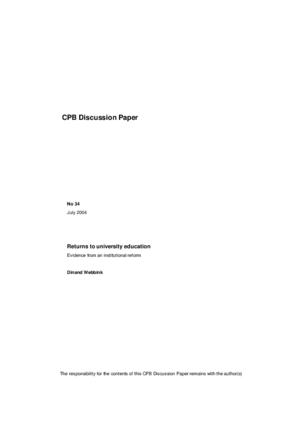Returns to university education; evidence from an institutional reform
Ruimte voor verhoging van private bijdragen aan hoger onderwijs
We are sorry, unfortunately there is no English translation of this page.
In 1982, duration of university education in the Netherlands decreased from five to four years. This institutional reform is exploited for estimating the causal effect of one year of university education on wages in 1997.
Wages of employees who enrolled just before or after the reform are compared using data from the Dutch Wage Structure Survey of 1997. We find that the fifth year of university education increased wages with 7 to 9 percent. This wage differential is found for employees enrolling four years before or after the reform.
Confounding factors like time-effects, typical age-effects or ability-bias do not seem to bias the main results. The findings suggest that there is scope for increasing private contributions of students. Moreover, the reform may have harmed total welfare. Alternative policies of sticking to five-year duration and increasing private contributions for higher education could have given a more favourable outcome.
